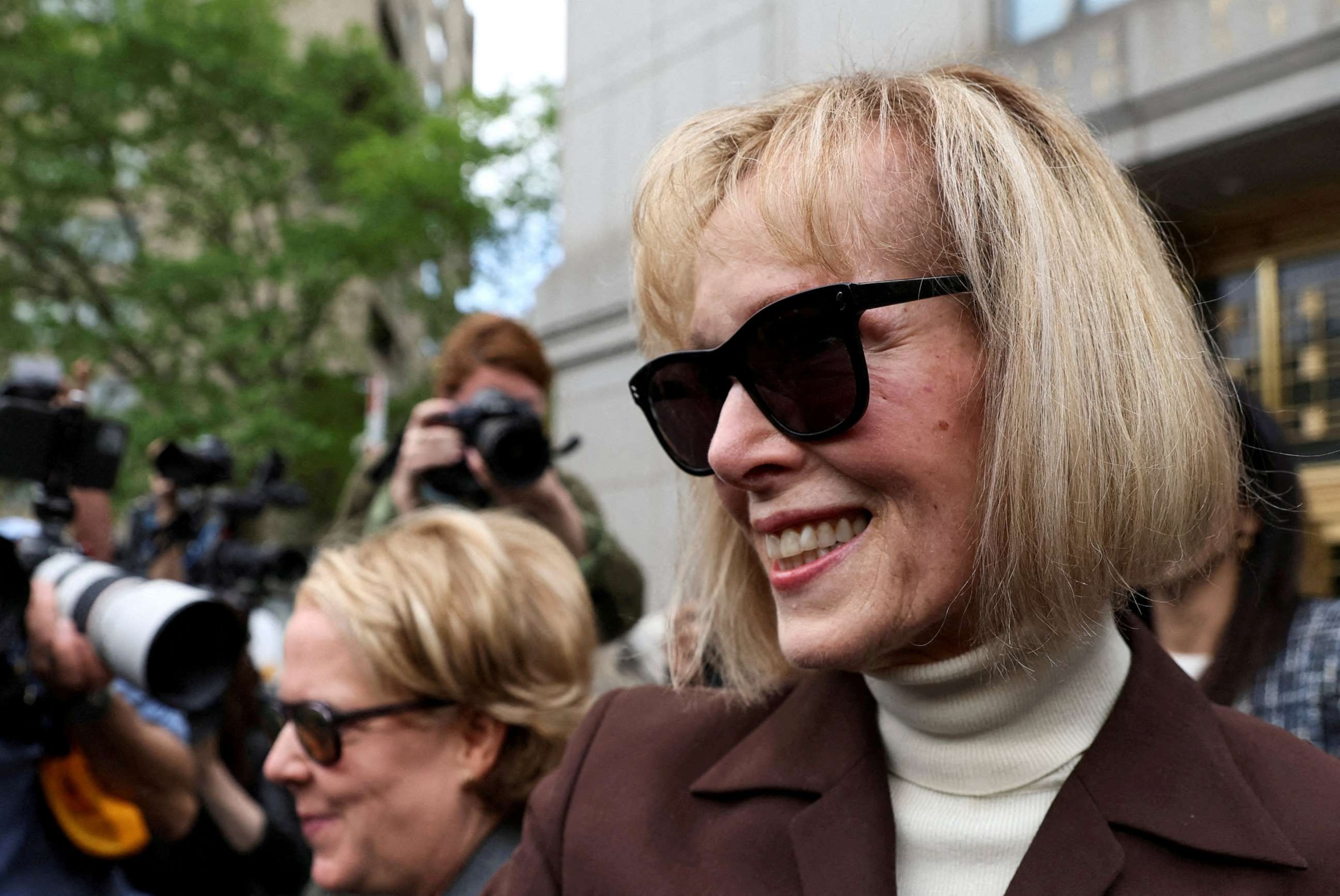Who is Lewis Kaplan, the no-nonsense judge overseeing Trump's federal defamation trial?
The trial, which starts today, involves Trump's defamation of E. Jean Carroll.
Judge Lewis Kaplan has overseen this trial before, and Donald Trump didn't like the ending.
Kaplan -- a veteran federal judge with a no-nonsense reputation -- is set to oversee the former president's federal defamation trial that starts today and will determine how much Trump should pay writer E. Jean Carroll for defaming her in 2019 when he denied her allegations of sexual assault. Less than a year ago, Kaplan supervised a separate trial where a jury determined that Trump was liable for sexually assaulting Carroll, awarding her $5 million in damages.
Based on the outcome of last year's trial, Kaplan ruled in September that Trump defamed Carroll -- leaving this week's trial to only determine how much Trump owes in damages.
Aggravated with his former lawyer's advice not to attend last year's the sexual assault trial, Trump has vowed to attend this week's trial and possibly testify, at the start of a year in which the former president could face as many as four criminal trials.
While Trump has, at times, upended his New York state civil fraud trial -- attending the proceedings to vent to the media, receiving $15,000 in fines for violating court orders, and breaking multiple rules set by that trial's judge when delivering his own closing statement -- observers say his federal trial should be less susceptible to chaos, largely thanks to the man overseeing the trial itself.
"It's not a media circus when you're in front of Judge Kaplan," said Josh Naftalis, a former federal prosecutor at Pallas Partners who tried a month-long securities fraud case before Kaplan. "He's there to get the trial done perfectly for everyone and not to waste anyone's time."
A seasoned trial lawyer and partner at Paul Weiss before being nominated to the bench by President Bill Clinton in 1994, Kaplan has overseen the trials of multiple terrorists, mafiosos, and white-collar fraudsters. Among his higher-profile cases are the trials of disgraced cryptocurrency billionaire Sam Bankman-Fried, Al Qaeda operatives Ahmed Khalfan Ghailani and Sulaiman Abu Ghaith, actor Kevin Spacey, and Prince Andrew.

"Trump may be the most high-profile litigant he's had in front of them, but he's had some very high-profile litigants. He's used to this," former federal prosecutor Elisha Kobre told ABC News.
Both Kobre and Naftalis described Kaplan as a detail-oriented and hard-working judge with decades of experience overseeing the smooth execution of criminal and civil trials. They said that Kaplan, with a whip-smart recollection of the details of cases, rarely requires briefing from lawyers to decide issues -- while still maintaining a strong command over the record of each case.
"He's one of those judges who just takes a great interest in the evidence, and in both sides of the case," Kobre said. "If a witness's testimony is not coming in clearly, he'll just ask his own questions."
Kaplan has also garnered a reputation for strictly upholding the rules of his courtroom, which include a rare ban on cell phones. While most judges allow lawyers and law enforcement to bring phones into the court, Kaplan does not hesitate to throw cellphone offenders out of his courtroom, according to Naftalis.
"My experience is, if your phone goes off once you are promptly thrown out of the courtroom," Naftalis said. "If it happens a second time, then I don't think he would have any trouble holding someone in contempt."
Kaplan's enforcement of his rules was on full display during Trump's sexual assault trial last year, when the judge steadfastly applied the rules of his courtroom and swatted down arguments from Trump's legal team.
When Trump's lawyers attempted to portray the absence of the former president positively to the jury as an effort to avoid the "logistical and financial burdens upon New York City, its residence and court itself," Kaplan quickly rejected the argument, highlighting how Trump scheduled a campaign event during the trial.
"If the Secret Service can protect him at that event, certainly the Secret Service, the Marshals Service, and the City of New York can see to his security in this very secure federal courthouse," Kaplan said.
Despite the challenge of selecting a jury for a well-known public figure like Trump, Kaplan orchestrated jury selection for that trial in less than half a day, advising the jury pool that "the name of the game here is utter fairness and impartiality."
And when Trump attempted to intervene in the trial with public statements, Kaplan was able to get Trump to stop commenting on the trial while it was ongoing.
"What you're trying to do is to get away from a statement by your client, a public statement, that on the face of it seems entirely inappropriate," Kaplan advised Trump's then-lawyer Joe Tacopina.
"I will speak to my client and ask him to refrain from any posts about this case," Tacopina promised.
Tacopina, who was not scheduled to represent Trump in this week's trial, withdrew from Trump's legal team on Monday. Trump attorney Alina Habba is serving as Trump's lead defense attorney for this week's trial.




